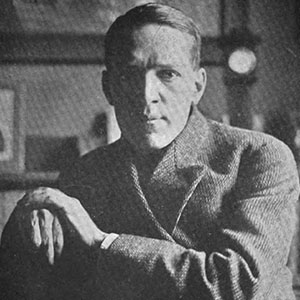Upton Sinclair was a Pulitzer Prize-winning author and social activist. While he authored more than 90 books, Sinclair is most well-known for writing The Jungle, which spurred reforms in the meatpacking industry.
Early Life
Upton Sinclair was born in Baltimore, Maryland, on September 20, 1878. While his parents were poor, he also spent time with his mother’s wealthy family. These diverse experiences helped shape his thinking and writing later in life.
At the age of 10, Sinclair’s family moved to New York City. Four years later, he enrolled in the City College of New York. He began his writing career penning children’s stories and articles for New York City magazines. After graduating, Sinclair attended Columbia University, paying his way by writing dime novels under a pseudonym. In 1900, Sinclair married Meta Fuller. The next year, the couple welcomed a son named David.
Literary Career
Sinclair’s first novels were failures, and he made ends meet as a journalist. After adopting socialism, he began writing for socialist newspaper Appeal to Reason. His undercover investigation into the mistreatment of workers at the city’s meatpacking factories would eventually lead to his publicly-acclaimed novel, The Jungle.
While publishers first turned down the novel, Doubleday published it in 1906. Sinclair’s descriptions of mistreated workers, cruelty to animals, and unsanitary factory conditions spurred sales of his books and triggered a public uproar. “[With ‘The Jungle’] I aimed at the public’s heart and by accident, I hit it in the stomach,” Sinclair stated.
The Jungle quickly became an international best seller and was quickly translated into 17 languages. It also struck a chord with President Theodore Roosevelt. After meeting with Sinclair at the White House, the President ordered an inspection of the meatpacking industry. In 1906, Congress passed the Pure Food and Drug Act and the Meat Inspection Act.
Sinclair’s other novels, which included The Metropolis (1908), King Coal (1917), The Goose-Step (1923), and The Flivver King (1937), tackled social issues ranging from fair wages to the education system. In 1940, Sinclair published World’s End, a historical novel that would launch an 11-book series. The novels place the main character, Lanny Budd, at the most significant world events in the early 20th century, including the rise of Nazi Germany. That novel, entitled Dragon’s Teeth, won Sinclair the Pulitzer Prize for Fiction.
Political Aspirations
Sinclair unsuccessfully attempted to turn his social advocacy into a political career.
After moving to California, Sinclair founded the state’s chapter of the American Civil Liberties Union (ACLU). He sought a seat in Congress in 1920 and 1922, losing both times. Sinclair was the Socialist party’s candidate for governor California in 1930. Four years later, he ran as a Democrat on a platform known as the End Poverty in California movement (EPIC). While it was his most successful political campaign, he still lost.
Sinclair ultimately returned to writing. In 1935, he published I, Candidate for Governor: And How I Got Licked. Sinclair died on November 25, 1968, at the age of 90.








